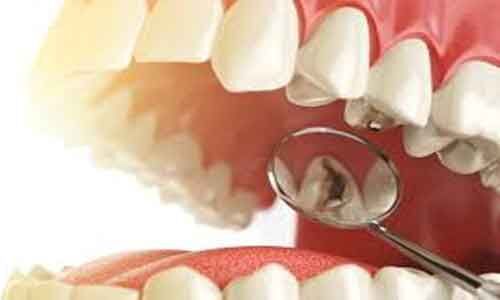- Home
- Medical news & Guidelines
- Anesthesiology
- Cardiology and CTVS
- Critical Care
- Dentistry
- Dermatology
- Diabetes and Endocrinology
- ENT
- Gastroenterology
- Medicine
- Nephrology
- Neurology
- Obstretics-Gynaecology
- Oncology
- Ophthalmology
- Orthopaedics
- Pediatrics-Neonatology
- Psychiatry
- Pulmonology
- Radiology
- Surgery
- Urology
- Laboratory Medicine
- Diet
- Nursing
- Paramedical
- Physiotherapy
- Health news
- Fact Check
- Bone Health Fact Check
- Brain Health Fact Check
- Cancer Related Fact Check
- Child Care Fact Check
- Dental and oral health fact check
- Diabetes and metabolic health fact check
- Diet and Nutrition Fact Check
- Eye and ENT Care Fact Check
- Fitness fact check
- Gut health fact check
- Heart health fact check
- Kidney health fact check
- Medical education fact check
- Men's health fact check
- Respiratory fact check
- Skin and hair care fact check
- Vaccine and Immunization fact check
- Women's health fact check
- AYUSH
- State News
- Andaman and Nicobar Islands
- Andhra Pradesh
- Arunachal Pradesh
- Assam
- Bihar
- Chandigarh
- Chattisgarh
- Dadra and Nagar Haveli
- Daman and Diu
- Delhi
- Goa
- Gujarat
- Haryana
- Himachal Pradesh
- Jammu & Kashmir
- Jharkhand
- Karnataka
- Kerala
- Ladakh
- Lakshadweep
- Madhya Pradesh
- Maharashtra
- Manipur
- Meghalaya
- Mizoram
- Nagaland
- Odisha
- Puducherry
- Punjab
- Rajasthan
- Sikkim
- Tamil Nadu
- Telangana
- Tripura
- Uttar Pradesh
- Uttrakhand
- West Bengal
- Medical Education
- Industry
New teeth gel may prevent dental caries and tooth decay

Researchers have developed a bioactive peptide that coats tooth surfaces, helping prevent new cavities and heal existing ones in lab experiments. The study has been published in the ACS Applied Materials & Interfaces.
China According to the World Health Organization, Dental caries is one of the most widespread non-communicable disease globally. Untreated caries could lead to worse pain, tooth loss, infection, and even illness or death. Therefore wantingly or unwantingly one has to undergo a painful process of filling up the cavities. Now scientists may seem to have found the answer.
Researchers have developed a bioactive peptide that coats tooth surfaces, helping prevent new cavities and heal existing ones in lab experiments. The study has been published in the ACS Applied Materials & Interfaces.
Conventional treatment for dental cavities involves removing decayed tissue and filling the hole with materials, such as amalgam or composite resin. However, this procedure can damage healthy tissue and cause severe discomfort for patients. Hai Ming Wong, Quan Li Li, and colleagues wanted to develop a two-pronged strategy to prevent and treat tooth decay: 1) prevent the colonization of the tooth surface by the plaque-forming bacteria that cause cavities, and 2) reduce demineralization, or the dissolving of tooth enamel, while increasing remineralization, or repair.
The researchers based their anti-cavity coating on a natural antimicrobial peptide called H5. Produced by human salivary glands, H5 can adsorb onto tooth enamel and destroy a broad range of bacteria and fungi. To promote remineralization, the team added a phosphoserine group to one end of H5, which they thought could help attract more calcium ions to repair the enamel than natural H5. They tested the modified peptide on slices of human molars. Compared with natural H5, the new peptide adsorbed more strongly to the tooth surface, killed more bacteria and inhibited their adhesion, and protected teeth from demineralization. Surprisingly, however, both peptides promoted remineralization to a similar degree. After brushing, people could someday apply the modified peptide to their teeth as a varnish or gel to protect against tooth decay, the researchers say.
For more details click on the link: https://doi.org/10.1021/acsami.9b19745
Hina Zahid Joined Medical Dialogue in 2017 with a passion to work as a Reporter. She coordinates with various national and international journals and association and covers all the stories related to Medical guidelines, Medical Journals, rare medical surgeries as well as all the updates in the medical field. Email: editorial@medicaldialogues.in. Contact no. 011-43720751
Dr Kamal Kant Kohli-MBBS, DTCD- a chest specialist with more than 30 years of practice and a flair for writing clinical articles, Dr Kamal Kant Kohli joined Medical Dialogues as a Chief Editor of Medical News. Besides writing articles, as an editor, he proofreads and verifies all the medical content published on Medical Dialogues including those coming from journals, studies,medical conferences,guidelines etc. Email: drkohli@medicaldialogues.in. Contact no. 011-43720751


